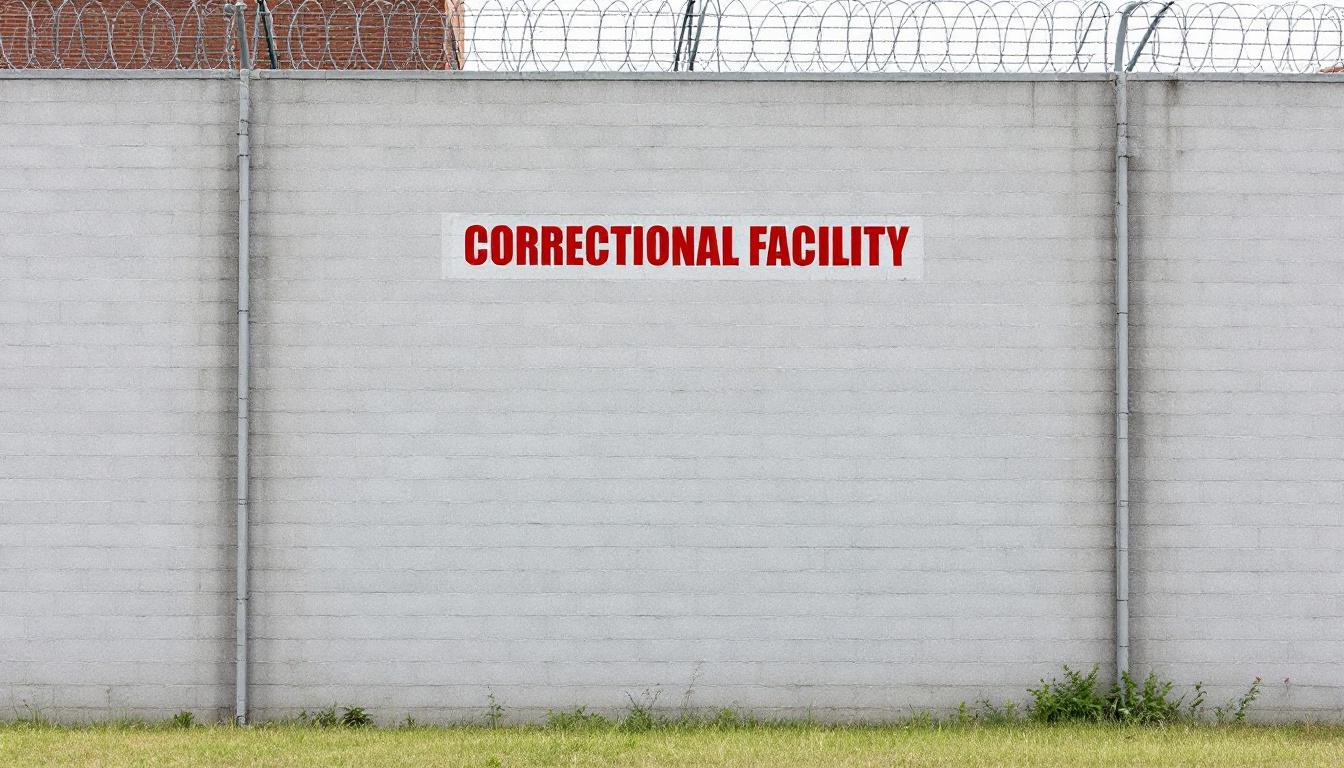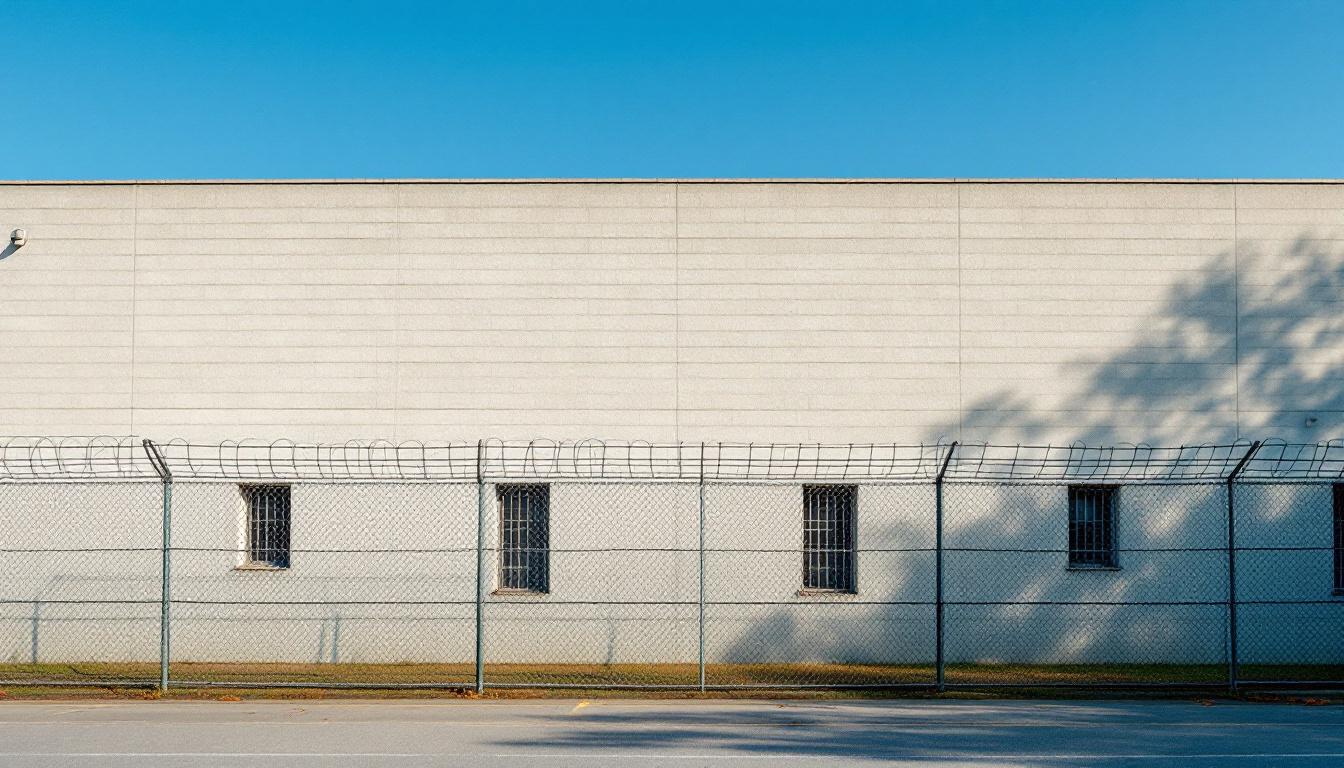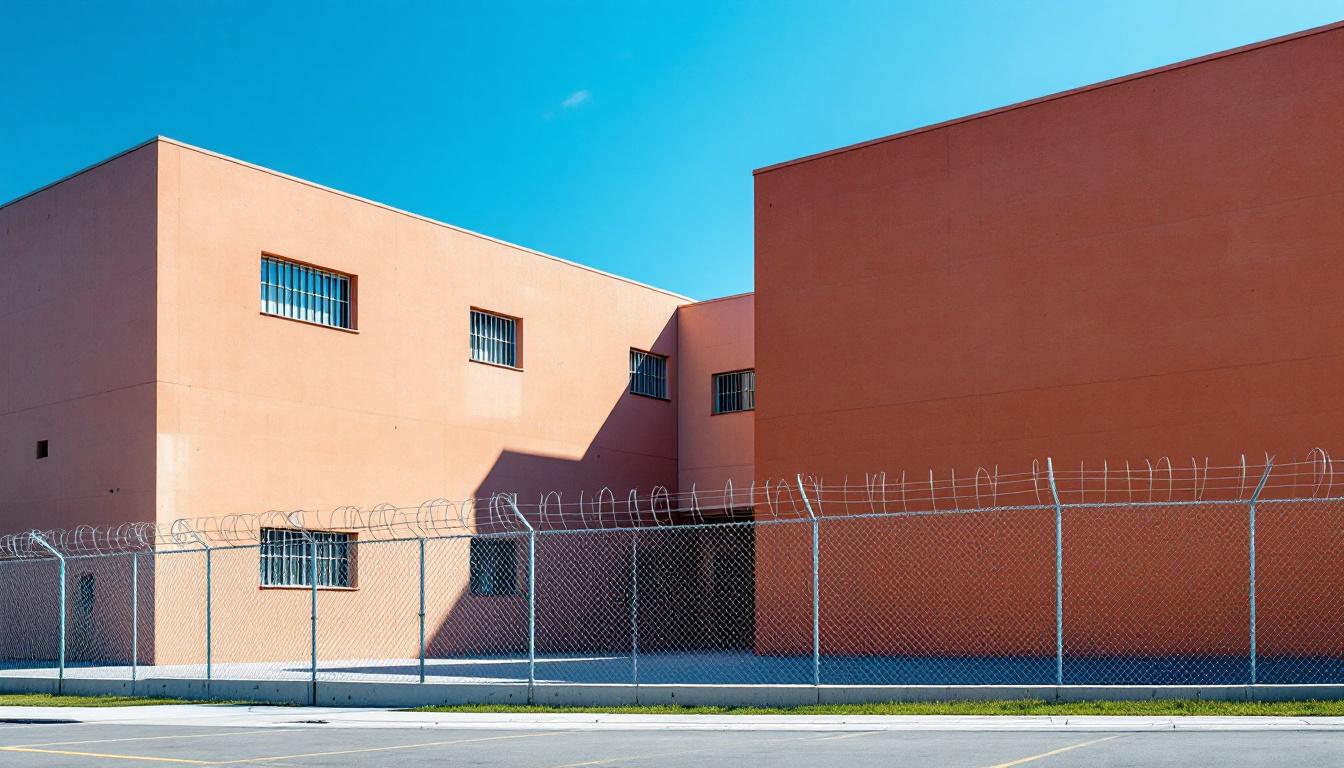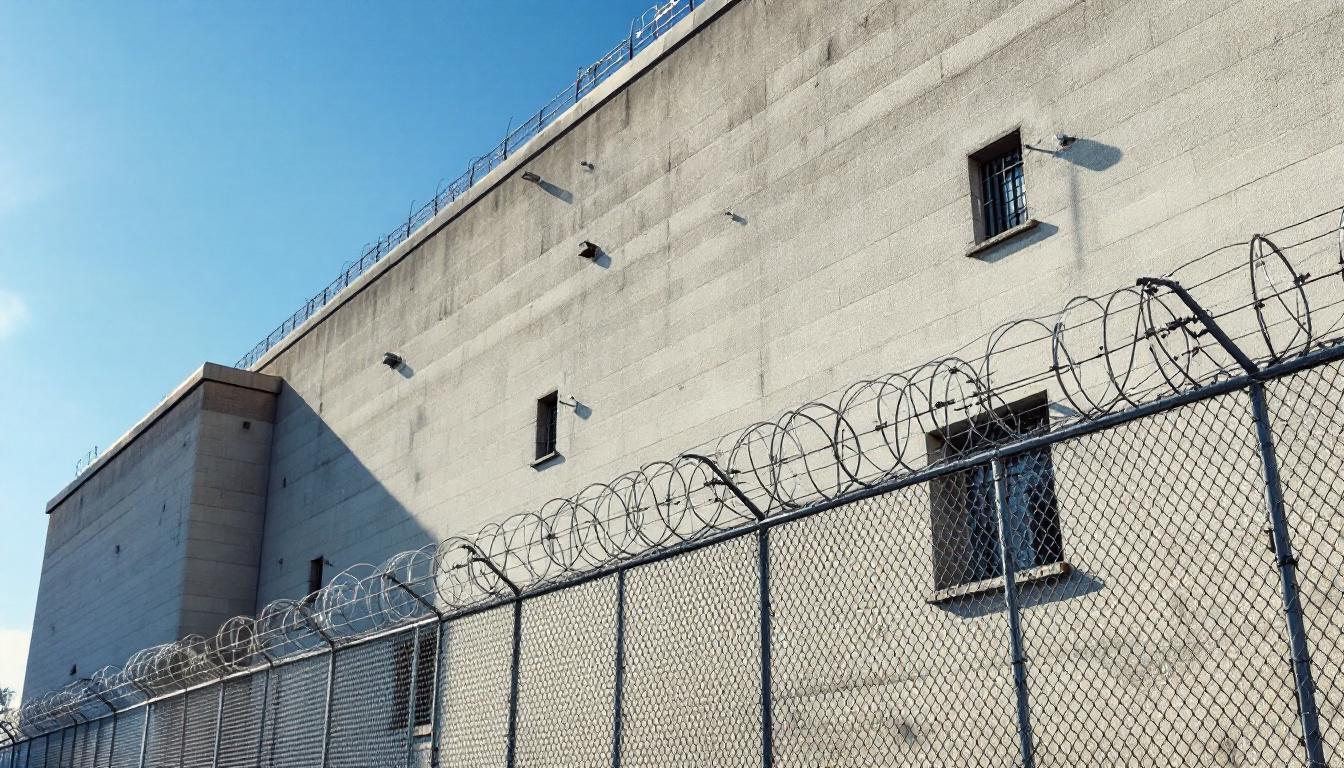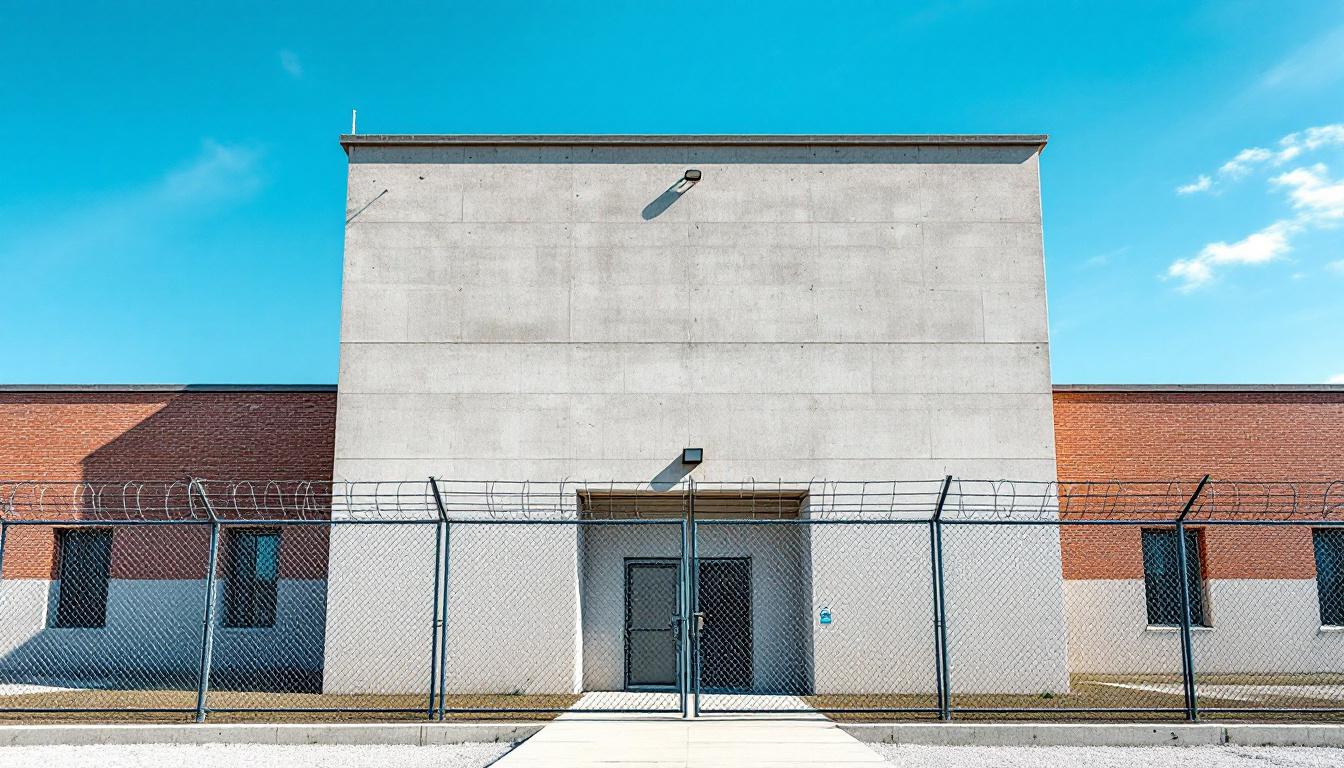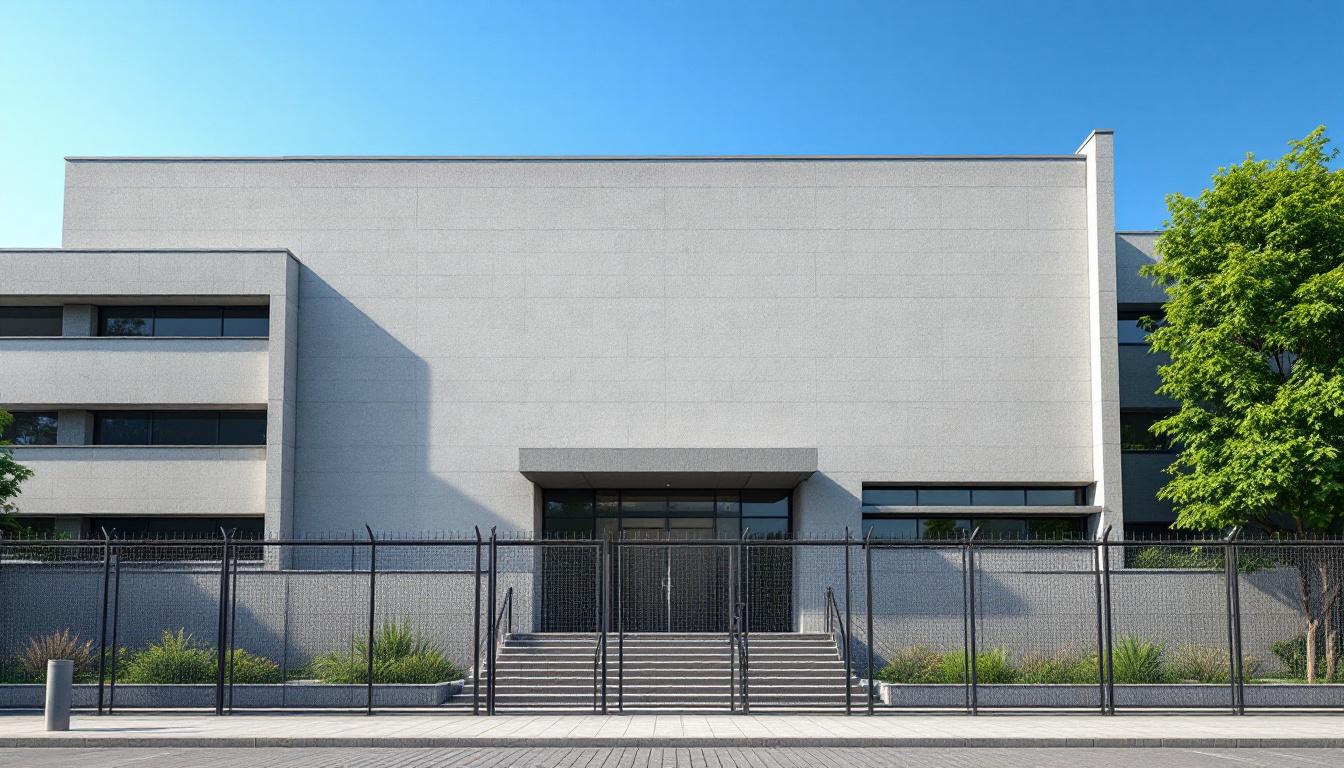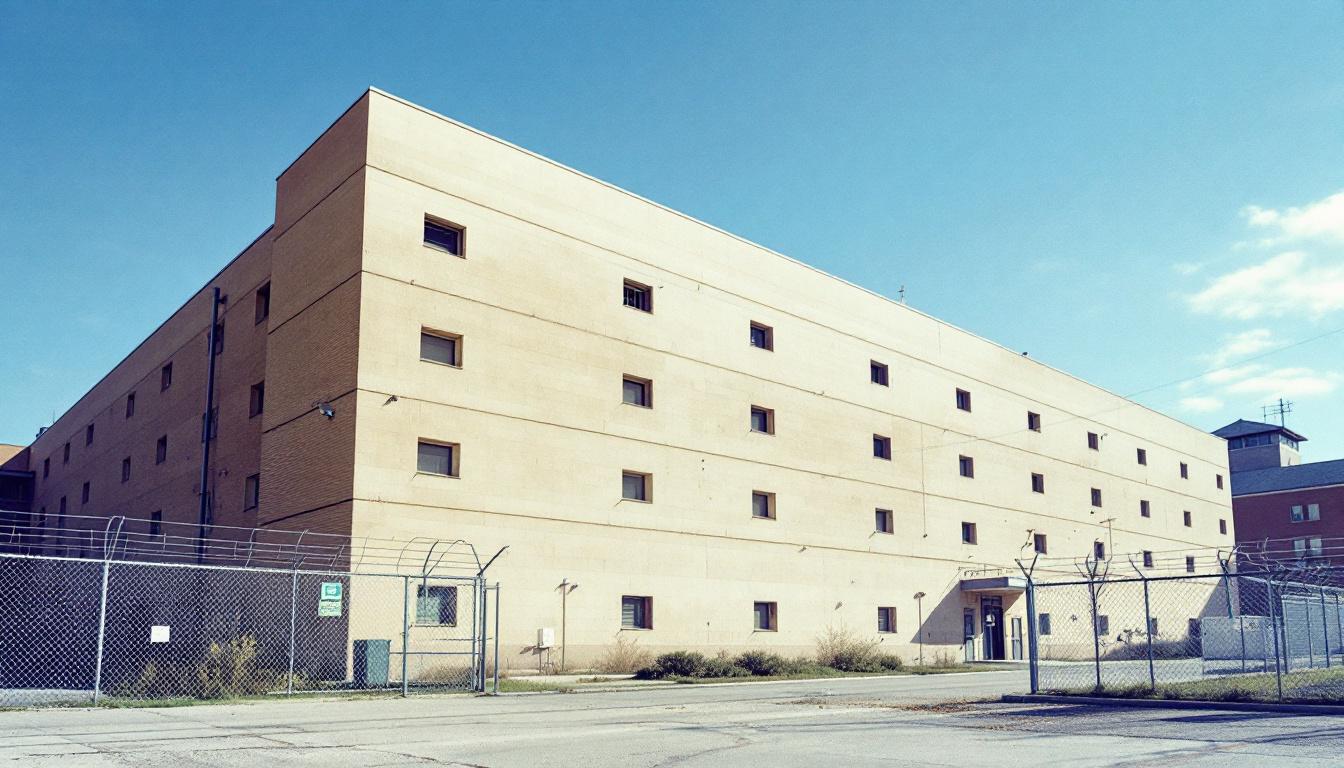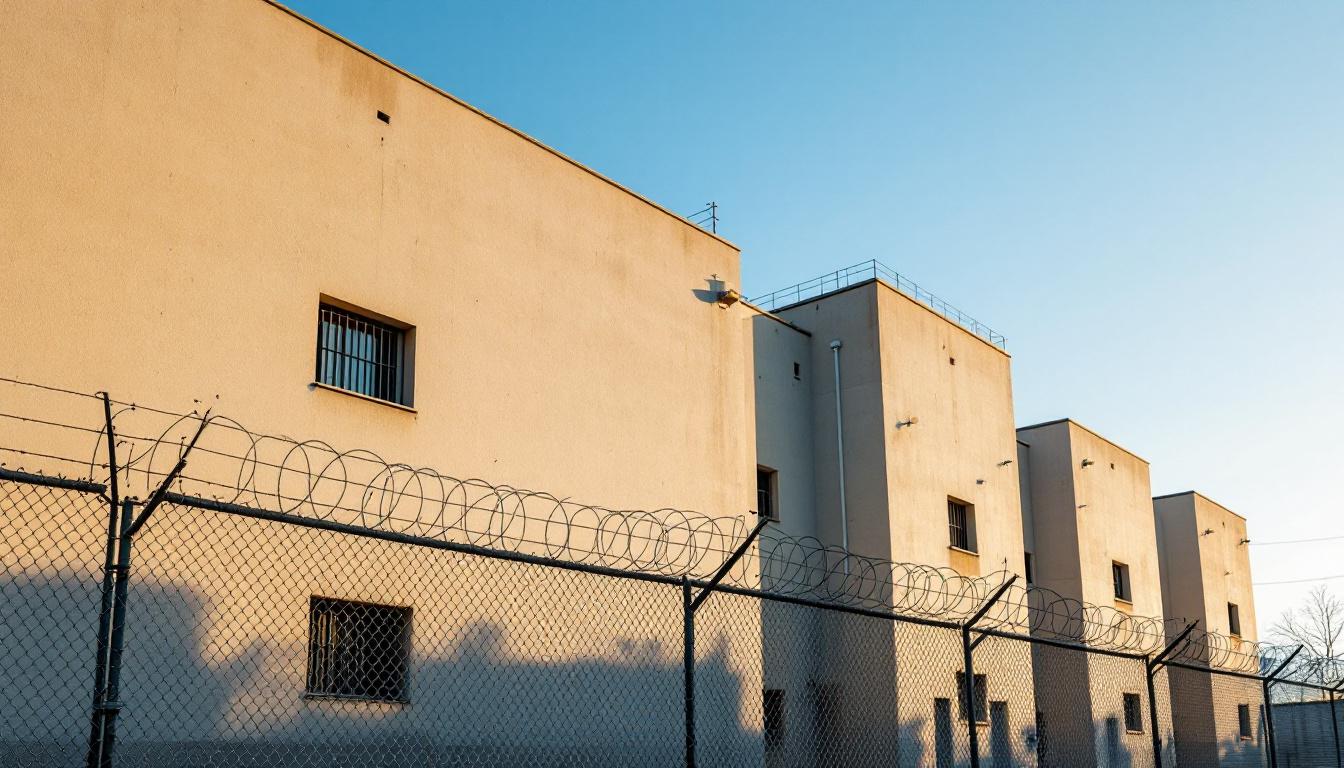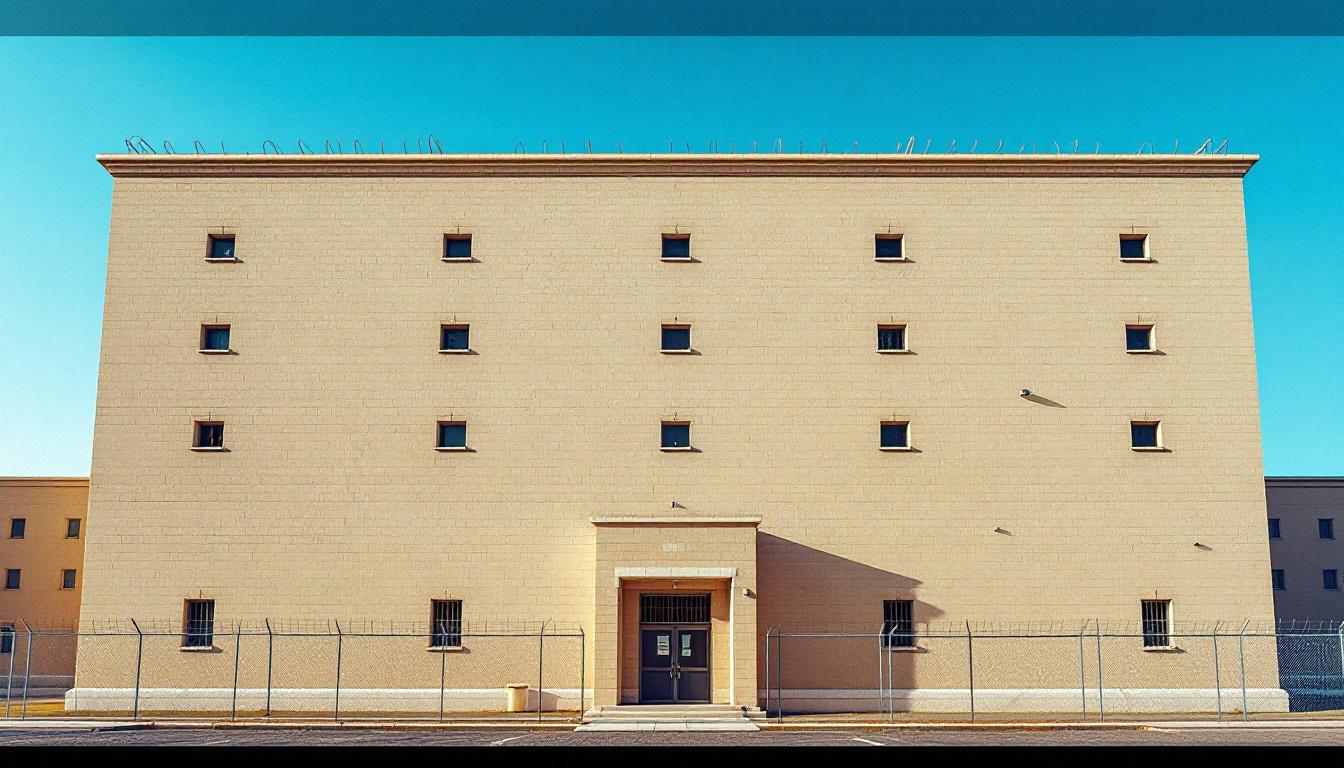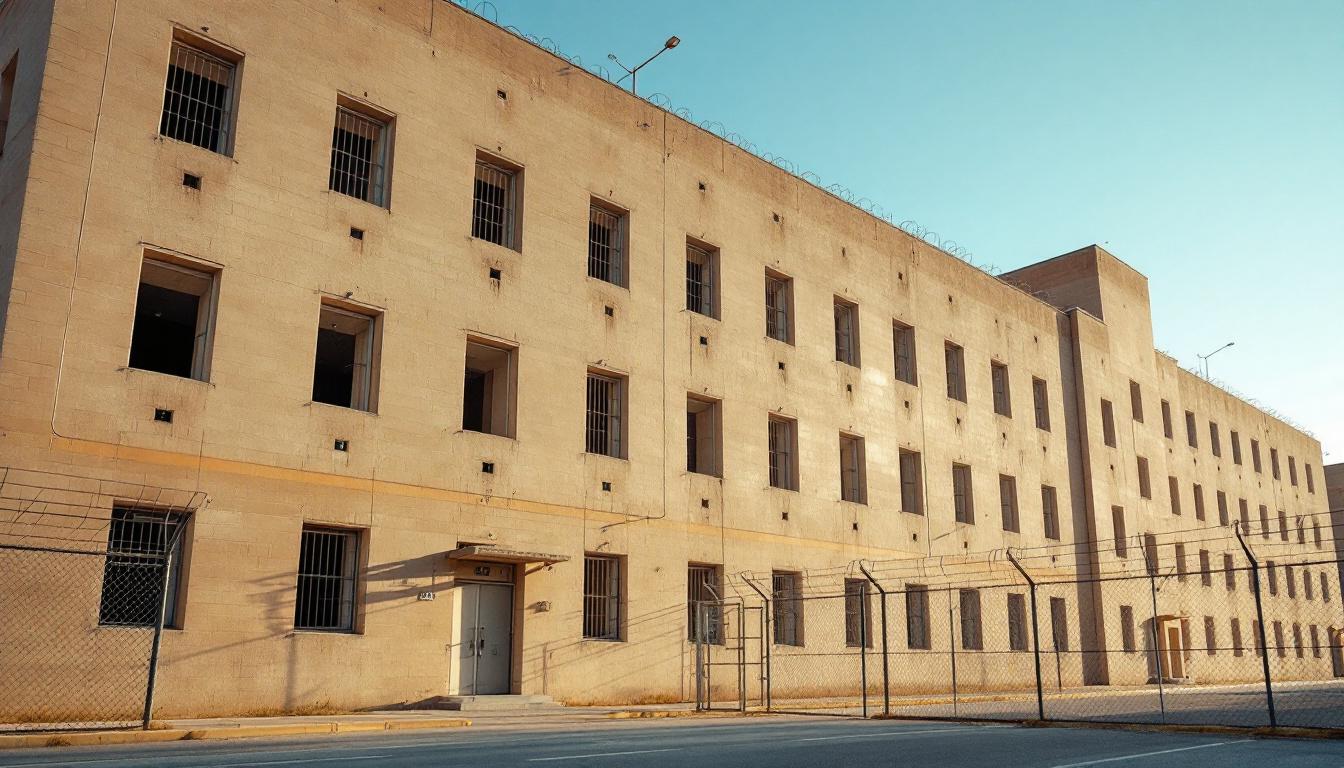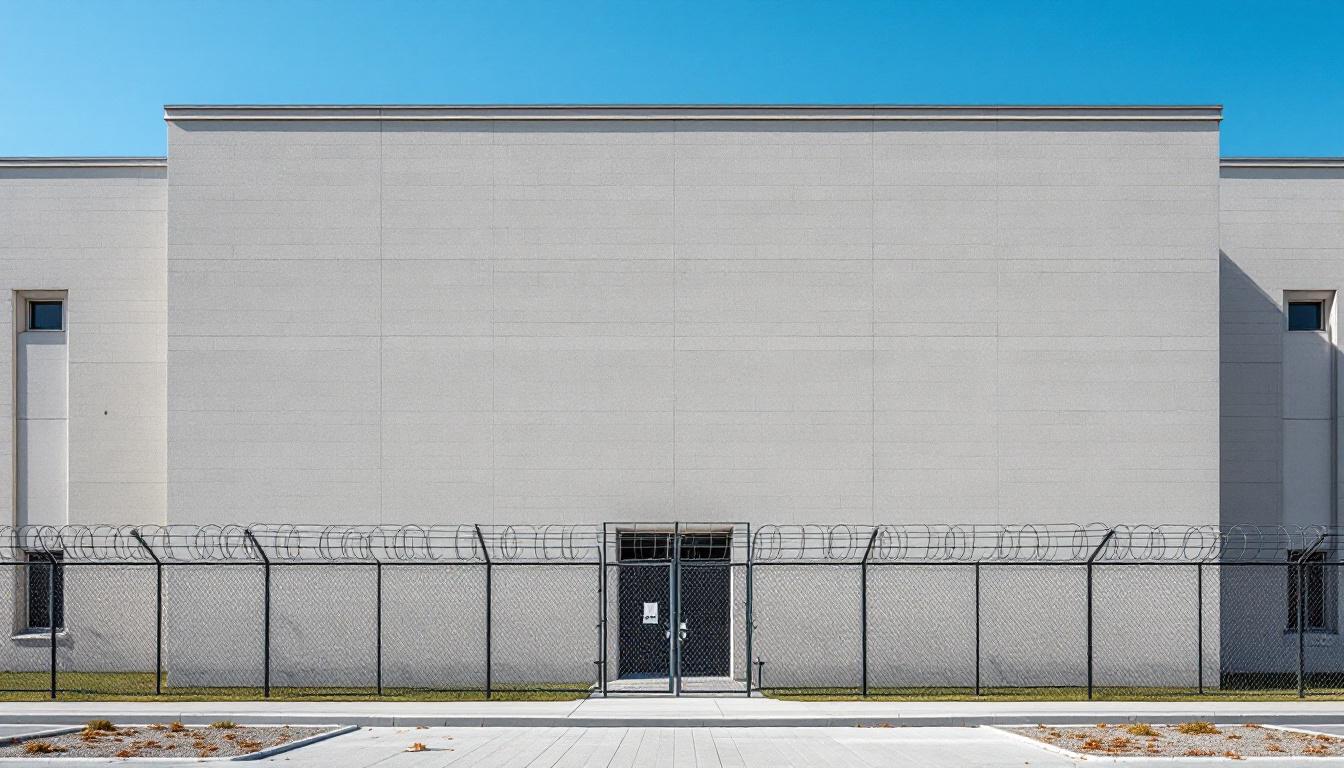
Quick Navigation
How to contact an inmate at Tipton County Sheriff's Office
This comprehensive guide will walk you through how to connect with an inmate at Tipton County Sheriff's Office. Follow the steps below to find an inmate and send letters and photos:
- Search for the inmate using our search tool below
- Create your account or log in to Penmate
- Write your message (up to 6,000 characters)
- Send instantly - inmates receive printed copies daily
Find an Inmate
Search for an inmate to start communicating today
Tip: You can search by first name, last name, or inmate ID number
To contact a person at Tipton County Sheriff's Office start by searching for the person on the official facility website. Perform a search by following these steps:
- Step 1: Enter their first name and last name into the search form and click "Search"
- Step 2: Locate their inmate record
- Step 3: Write down their Inmate ID and any housing information provided
Important! Be sure to enter the person's full name. Nicknames should not be used.
How to Send Messages to Inmates

You can use your phone or computer to send emails, letters, and photos to an inmate. Messages are sent electronically to inmate tablets or kiosks at the facility. If you would like to send a message, start by searching for an inmate at Tipton County Sheriff's Office.
Sending Photos and Postcards

A great way to send love and support to a loved one at Tipton County Sheriff's Office is to send photos and postcards. It only takes a few minutes to send photos from your phone and it makes a huge difference. You can also mail postcards with words of support and inspiration, or design your own postcard for special moments like birthdays and holidays.
Important! Be sure not to send any explicit photos or they may not be approved by the facility. You can also use a photo printing app like Penmate to make sure your photos are printed at the correct size (4x6 or 3x5) and are mailed according to the rules and regulations of Tipton County Sheriff's Office.
Frequently asked questions about Tipton County Sheriff's Office
-
How long does it take to deliver a message?
If you're sending an email message your letter is usually delivered within 24-48 hours. For messages sent via mail you should expect delivery within 3-7 days. All messages will need be approved by Tipton County Sheriff's Office.
-
How much does it cost to send a message to Tipton County Sheriff's Office?
You can send a message free using your phone or mail a message via USPS for the price of a $0.60 stamp and envelope. You can also purchase credits or e-stamps from services starting at $1.99.
-
What services can I use to contact an inmate at Tipton County Sheriff's Office?
Penmate
You can use Penmate to send letters and photos to an inmate from your phone. It's an easy way to stay in touch during your loved one's incarceration. Use the inmate locator to find an inmate's location and contact information, then you can send messages within a few minutes.
Securus messaging
Securus may be another option for communicating with an inmate at Tipton County Sheriff's Office. You can create a friends and family account and purchase credits to send messages. All messages will be reviewed and must be approved by the facility.
JPay
Some county jails and state prisons may support sending messages with JPay. You must register an account with the system, find your loved one, and purchase stamps to send messages. For some locations you can also attach photos.
Smart Jail Mail
You may also check if Smart Jail Mail is available at Tipton County Sheriff's Office. Smart Jail Mail is operated by Smart Communications and has contracted with some state and county jails. After purchasing credits, your messages and photos are sent to the facility, printed out, and then handed out to your loved one.
-
What is the mailing address of Tipton County Sheriff's Office?
Mailing address:
Tipton County Sheriff's Office
2300 W State Rte 28
Tipton, IN 46072
Phone: (765) 675-7004 -
What are the visiting hours at Tipton County Sheriff's Office?
Visiting hours at Tipton County Sheriff's Office vary by housing unit and security level. Generally, visits are scheduled on weekends and holidays, with some facilities offering weekday visits. Contact the facility directly at (765) 675-7004 or check their website for the current visiting schedule. Visits typically last 30-60 minutes and must be scheduled in advance.
-
What items are prohibited when sending mail to Tipton County Sheriff's Office?
Prohibited items typically include: cash, personal checks, stamps, stickers, glitter, glue, tape, staples, paperclips, polaroid photos, musical or blank greeting cards, hardcover books, magazines with staples, and any items containing metal or electronics. Only send letters on plain white paper with blue or black ink. Photos must be printed on regular photo paper (no Polaroids). Always check with Tipton County Sheriff's Office for their specific mail policies.
-
How do I send money to an inmate at Tipton County Sheriff's Office?
You can send money to an inmate at Tipton County Sheriff's Office through several methods: 1) Online using JPay, Access Corrections, or the facility's approved vendor, 2) Money orders mailed directly to the facility with the inmate's name and ID number, 3) Kiosks located in the facility lobby, or 4) Over the phone using a credit or debit card. Fees vary by method, typically ranging from $2.95 to $11.95 per transaction.
-
Can I schedule a video visit with an inmate at Tipton County Sheriff's Office?
Many facilities now offer video visitation as an alternative to in-person visits. At Tipton County Sheriff's Office, video visits may be available through services like Penmate, Securus Video Connect, GTL, or ICSolutions. Video visits typically cost $10-20 for 20-30 minutes and must be scheduled in advance. You'll need a computer or smartphone with a camera and reliable internet connection. Contact the facility for their specific video visitation policies and approved vendors.
-
What identification do I need to visit an inmate at Tipton County Sheriff's Office?
All visitors must present valid government-issued photo identification such as a driver's license, state ID, passport, or military ID. Minors must be accompanied by a parent or legal guardian who can provide the minor's birth certificate. Some facilities require visitors to be on the inmate's approved visitation list, which may require a background check. Contact Tipton County Sheriff's Office for specific ID requirements and visitor approval procedures.
-
How can I find out an inmate's release date?
To find an inmate's release date at Tipton County Sheriff's Office, you can: 1) Use the online inmate search tool if available, 2) Call the facility's records department, 3) Contact the inmate's case manager or counselor, or 4) Have the inmate provide this information during a call or visit. For privacy reasons, some facilities only release this information to immediate family members.
Facility Overview
Contact Information
Tipton County Sheriff's Office2300 W State Rte 28
Tipton, IN 46072
Phone: (765) 675-7004
Official Website
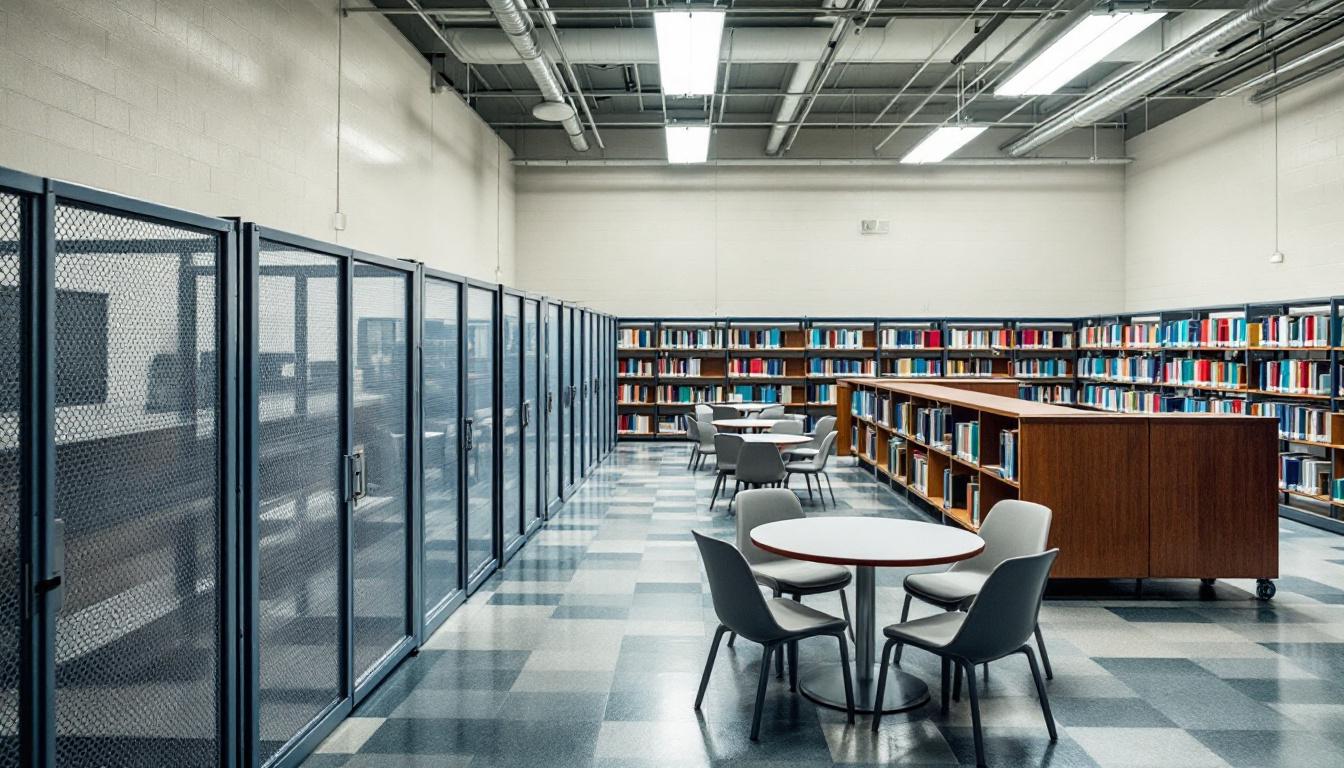
About Tipton County Sheriff's Office
Nestled within Tipton County's administrative landscape, the Tipton County Jail serves as a cornerstone facility in Indiana's broader correctional framework, providing secure housing and rehabilitative services for individuals awaiting trial or serving shorter sentences. This county-operated facility typically maintains its role through collaborative partnerships with local law enforcement agencies, courts, and community organizations, working together to address both immediate custody needs and longer-term reintegration goals. The facility generally operates under the oversight of county officials and may coordinate with state-level correctional departments to ensure compliance with Indiana's detention standards and best practices.
The jail's approach to resident services often emphasizes a comprehensive blend of security, programming, and preparation for community reentry. Educational opportunities may include basic literacy programs, GED preparation, and vocational training designed to enhance employment prospects upon release. Additionally, the facility typically offers substance abuse counseling, mental health services, and life skills workshops that address the underlying factors contributing to criminal behavior. These collaborative efforts between facility staff, community volunteers, and service providers aim to create meaningful pathways for personal development and successful reintegration into Tipton County's communities.
Programs & Services
**Educational foundations and vocational skill development** form the cornerstone of rehabilitation initiatives at Tipton County Jail, reflecting a comprehensive approach to resident transformation. These evidence-based initiatives typically emphasize preparing individuals for successful community reintegration through structured learning opportunities and practical skill acquisition. The facility's philosophy centers on addressing underlying factors that may contribute to recidivism while fostering personal growth and self-sufficiency among residents.
Educational initiatives often encompass a broad spectrum of academic opportunities designed to meet diverse learning needs within the resident population. The facility may deliver general education programs that allow residents to pursue basic literacy skills, high school equivalency preparation, and continuing education opportunities. Furthermore, specialized education services typically accommodate residents with learning differences or developmental needs, ensuring equitable access to educational advancement. Vocational training initiatives complement academic programming by providing residents with marketable skills in various trade sectors, potentially including construction, food service, or maintenance fields that align with regional employment opportunities.
Support services and therapeutic initiatives create a holistic framework for addressing the complex needs of residents during their incarceration period. Faith-based programs often provide spiritual guidance and community connection for those seeking religious or moral support throughout their rehabilitation journey. Library services typically offer educational resources, recreational reading materials, and research opportunities that support both academic pursuits and personal enrichment. Furthermore, music programs may deliver creative outlets that foster emotional expression and stress management, while trauma-informed care initiatives often address underlying psychological factors that may have contributed to criminal behavior, helping residents develop healthier coping mechanisms and interpersonal skills.
Daily Life & Visitation
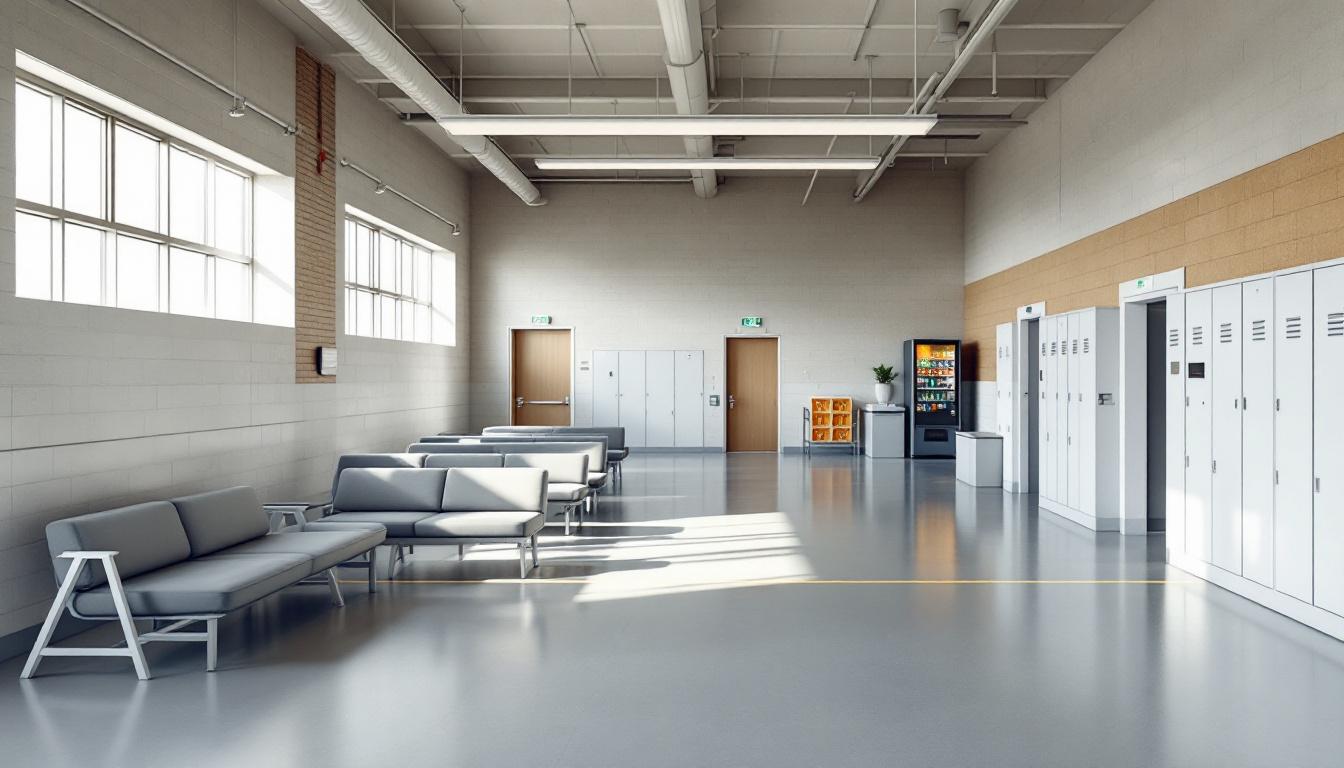
The steady rhythm of wake-up calls, meal times, and scheduled activities now forms the backbone of each day, delivering a predictable framework that residents can rely upon. This structured approach typically begins with early morning routines and continues through regularly scheduled count times, meals, and programming activities that help establish a sense of normalcy and purpose. The consistent daily schedule generally includes designated periods for personal hygiene, meals, recreation, and various programs, allowing residents to develop routines that support their well-being during their stay.
Living accommodations at the facility typically consist of housing units designed to provide basic necessities while maintaining appropriate security measures. Residents generally share living spaces with others and have access to common areas where they can interact during designated times. Meals are usually served at scheduled intervals in dining areas, with menus that aim to provide balanced nutrition while accommodating dietary restrictions and medical needs. Personal property is typically limited to essential items, though residents may often access commissary services to purchase approved personal care items and snacks to supplement their basic needs.
Furthermore, the facility may offer various recreational activities and exercise opportunities that help residents maintain physical fitness and mental well-being during their incarceration. Work assignments are often available, allowing residents to contribute to facility operations while developing job skills and maintaining a sense of productivity. Although security requirements shape many aspects of daily life, visitation programs typically provide opportunities for residents to maintain connections with family members and loved ones through scheduled visits and phone calls. These communication options, along with structured programming schedules, help residents stay connected to their support systems while working toward their eventual reintegration into the community.
Ready to Connect?
Start communicating with your loved one today
Search for an Inmate
